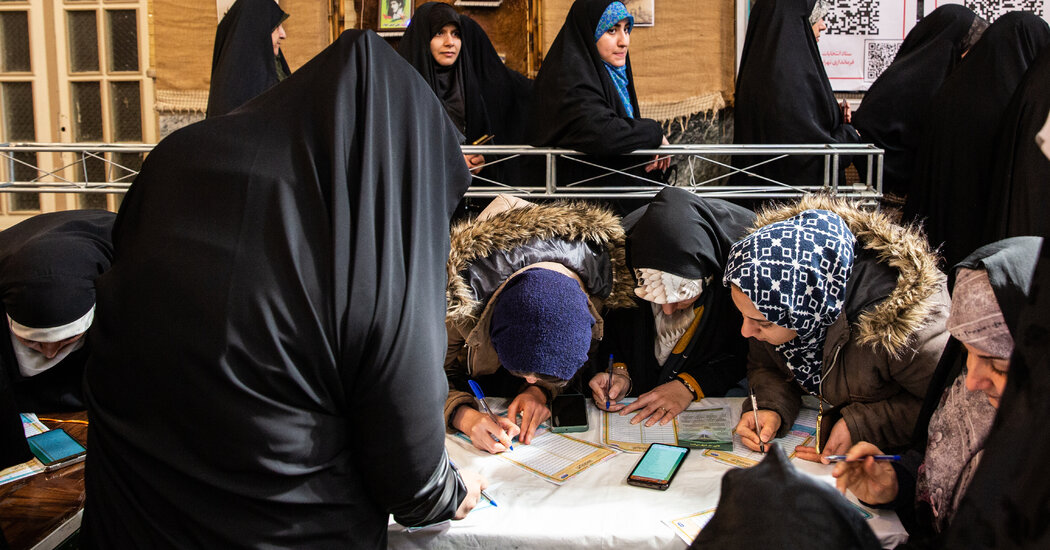Iranians have delivered a stinging rebuke to Iran’s ruling conservatives, an analysis of parliamentary election results shows, with millions of Iranians having boycotted the vote and a far-right faction making striking gains.
Many well-known conservative lawmakers, including the current speaker of Parliament, Gen. Mohammad Baqer Ghalibaf, a former Revolutionary Guard Corps commander, saw their vote counts drop steeply in the voting last week, and in many instances were defeated in their bids for re-election.
In numerous cities, including the capital of Tehran, so many blank ballots were cast that some politicians joked that several seats in Parliament should be left empty to account for the lack of votes.
Perhaps even more striking was the emergence of many ultraconservative candidates. In Tehran, those included a young state television personality, Amir Hossein Sabeti, who had no political experience and denied the coronavirus pandemic was real; a cleric, Mahmoud Nabavian, who opposed Iran’s nuclear deal with world powers and said the country needs nuclear weapons to confront Israel; and another cleric, Hamid Rasai, who said that protesters from the extensive women-led uprising in 2022, as well as one of Iran’s most famous actresses, should be executed.
Iran is a theocracy with a parallel system of governance in which elected bodies are supervised by appointed councils. Key state policies on nuclear, military and foreign affairs are decided by the supreme leader, Ayatollah Ali Khamenei, and the Supreme National Security Council, while the Revolutionary Guards have extensive influence over the economy and politics.
Parliament’s influence is limited and is centered primarily on social and economic issues. But parliamentary elections remain important as indicators of public sentiment, which in this case has soured on the ruling clerical and military elite and the system as a whole, analysts say.
